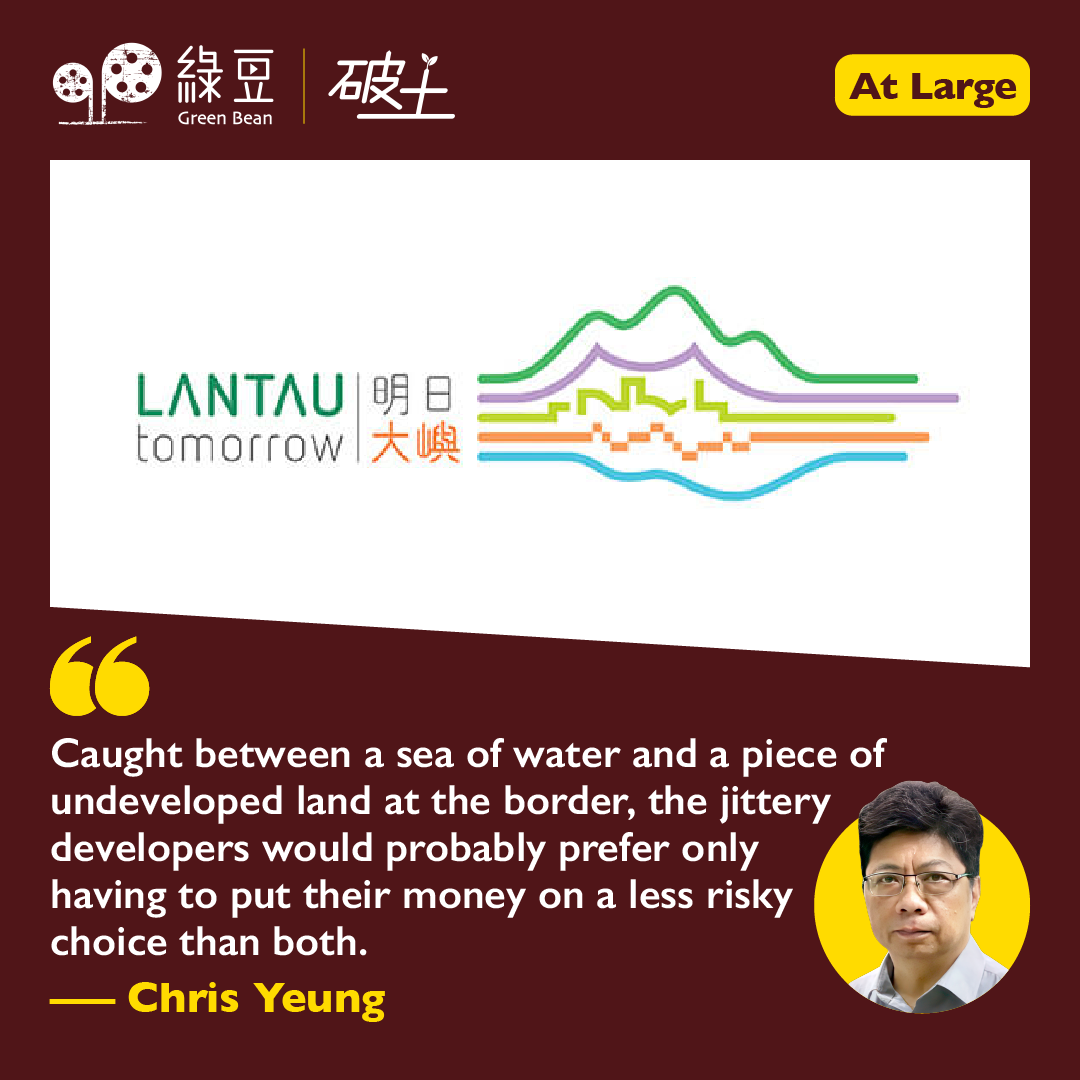Lantau Tomorrow Vision may be yesterday’s dream

On the face of it, the now-shelved extradition bill and the Kau Yi Chau reclamation plan in Hong Kong have nothing in common. There is no simple answer of yes or no.
They have one thing in common: both were the signature policies initiated by former Chief Executive Carrie Lam during her ill-fated five-year reign. Though their fate seems to be different, they increasingly look the same, ending up on the shelves of Government offices.
At the centre of protracted protests morphed into a social movement in summer 2019, the bill was finally shelved by Lam. She bowed out in 2022. Her successor, John Lee, has earlier indicated clearly he has no plan to put it back onto his legislative programme during his term.
Unlike the bill, Lee has vowed to continue the reclamation plan off the waters of Lantau and another Carrie Lam’s mega-size development plan, known as Northern Metropolis, in his maiden policy address in 2022.
“Lantau Tomorrow Vision”
There are growing indications that, like the extradition bill, reclamation of the multi-billion-dollar project, dubbed as “Lantau Tomorrow Vision”, will not commence before his current term ends on June 30, 2027.
Another vision of Lam looks to become a dream, if not a nightmare.
Doubts and questions about the financial viability of the Kau Yi Chau reclamation project began to surface last year amid a sluggish property market. Property prices were down by a double-digit figure. Developers were reluctant and hesitant in bidding for government land.
Calls for prioritising the Northern Metropolis and the reclamation projects grew.
In October, former chief executive Leung Chun-ying raised eyebrows when he wrote in a series of articles on his Facebook page, warning of an “overkill” in land creation. A sharp increase in land supply without accurately estimating the demand in coming years, he warned, might result in negative assets and fiscal challenges for the Government.
He did not name any land creation projects, but had questioned the wisdom of reclamation without sufficient research and analysis.
The building of three artificial islands through reclamation in waters off Kau Yi Chau, which is located at the southeastern side of Lantau Island, the city’s largest outlying island, is the Government’s only reclamation plan.
Leung’s challenge was quickly rebuked by John Lee. Without naming Leung, Lee insisted the Government must create and reserve land . “For the housing market to develop in a healthy manner, the Government must seize control of land supply. Otherwise, those with vested interests will be in the driving seat.”
With this year’s fiscal deficit growing worse than predicted and the Northern Metropolis plan seems to be given the priority, Government officials have become ambivalent when it comes to the timetable of reclamation.
Originally scheduled to begin at the end of 2025, the Government has earlier said reclamation work may be slightly deferred, then further revised to “within the current term,” i.e. June 30, 2027.
Speaking at a Legislative Council meeting on Tuesday, no date was given. Development minister Bernadette Linn said “there is no need to fix a date now.” She argued it was important for the Government to start doing the preparatory work, then deciding when and how to do it after taking into account the economic and financial situation.
“Northern Metropolis first” strategy
In a signed commentary published on January 7, the pro-Beijing Ta Kung/Wen Wei website said: “Faced with huge fiscal deficit and practical need under the new integration circumstances, the Northern Metropolis plan will come first, then the reclamation. The reclamation plan will have to slow down, or even be suspended.”
“The Lantau Tomorrow Vision will be a thing of the past,” read the article’s headline.
The “Northern Metropolis first” strategy became obvious late last year when the Financial Secretary Paul Chan and China’s top representative in Hong Kong, Zheng Yanxiong co-led a tour of business and property tycoons to the border development site.
The tour came three weeks after Xia Baolong, Beijing’s pointed man on Hong Kong affairs, told a group of business leaders at a meeting in Shenzhen to “recognise their responsibilities” and take “concrete actions.” The meeting was dubbed by an unidentified figure from the financial sector in a news report as an unprecedented “mobilisation meeting” aimed to drum up business support for the Beijing-backed Northern district megaproject.
With no sign of an early rebound of the economy and the property sector, there are growing doubts about the enthusiasm and financial capability of developers in investing in the Northern Metropolis.
Speaking at a seminar in Beijing last week, Xia gave another reminder to the business sector, saying they should act as the key driving force when the city underwent the testing times of economic transformation.
Caught between a sea of water and a piece of undeveloped land at the border, the jittery developers would probably prefer only having to put their money on a less risky choice than both.
▌[At Large] About the Author
Chris Yeung is a veteran journalist, a founder and chief writer of the now-disbanded CitizenNews; he now runs a daily news commentary channel on Youtube. He had formerly worked with the South China Morning Post and the Hong Kong Economic Journal.





